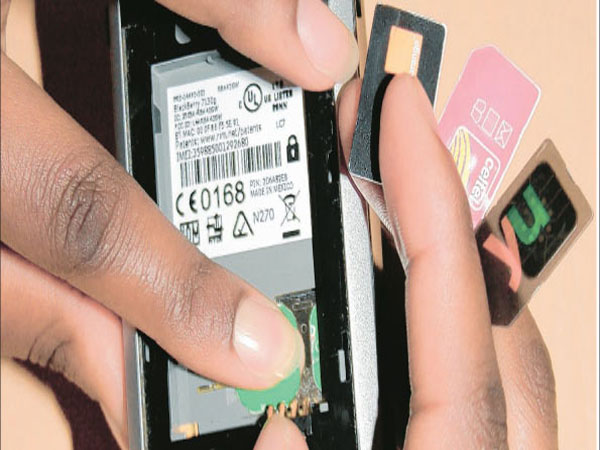



Date:22/06/11
 UK regulator Ofcom has given phone operators the green light to trade spectrum in a move intended to increase mobile network capacity. Available bandwidth is becoming a huge issue as smartphones put increasing demand on networks.
UK regulator Ofcom has given phone operators the green light to trade spectrum in a move intended to increase mobile network capacity. Available bandwidth is becoming a huge issue as smartphones put increasing demand on networks.
The trading of airwaves comes ahead of a crucial spectrum auction next year that will usher in 4G data services.
Both the auction and the decision to allow operators to trade existing spectrum have caused controversy.Spectrum trading allows operators to sell off the airwaves they own in the 900MHz, 1800MHz and 2100MHz frequency bands.
Historically the 900MHz slice of spectrum has belonged exclusively to O2 and Vodafone because they were the only two mobile operators on the market when it was handed out.While other nations have reallocated this spectrum to offer a more level-playing field ahead of 4G auctions, this has not happened in the UK. Ofcom had originally planned to redistribute the spectrum allocated to O2 and Vodafone, but was met with a legal action, initiated by the two operators. Ofcom dropped its plans following the merger of T-Mobile and Orange.
Everything Everywhere (EE), the parent company of T-Mobile and Orange will be the biggest beneficiary of spectrum trading.
It was required to sell off about 19 percent of its spectrum frequencies as a condition of the merger. Three is unhappy as it has the least spectrum to trade. "Spectrum is the lifeblood of smartphones and the mobile internet and for those with surplus holdings it is also a strategic asset, so voluntary trading is the exception," it said in a statement.
"This move simply allows those who have been gifted access to public spectrum to profit from it, with no benefit for UK taxpayers."
Three will voice its concerns later today at a Department of Culture select committee hearing set up to discuss the way spectrum is being allocated.
Mobile firms can trade spectrum
 UK regulator Ofcom has given phone operators the green light to trade spectrum in a move intended to increase mobile network capacity. Available bandwidth is becoming a huge issue as smartphones put increasing demand on networks.
UK regulator Ofcom has given phone operators the green light to trade spectrum in a move intended to increase mobile network capacity. Available bandwidth is becoming a huge issue as smartphones put increasing demand on networks. The trading of airwaves comes ahead of a crucial spectrum auction next year that will usher in 4G data services.
Both the auction and the decision to allow operators to trade existing spectrum have caused controversy.Spectrum trading allows operators to sell off the airwaves they own in the 900MHz, 1800MHz and 2100MHz frequency bands.
Historically the 900MHz slice of spectrum has belonged exclusively to O2 and Vodafone because they were the only two mobile operators on the market when it was handed out.While other nations have reallocated this spectrum to offer a more level-playing field ahead of 4G auctions, this has not happened in the UK. Ofcom had originally planned to redistribute the spectrum allocated to O2 and Vodafone, but was met with a legal action, initiated by the two operators. Ofcom dropped its plans following the merger of T-Mobile and Orange.
Everything Everywhere (EE), the parent company of T-Mobile and Orange will be the biggest beneficiary of spectrum trading.
It was required to sell off about 19 percent of its spectrum frequencies as a condition of the merger. Three is unhappy as it has the least spectrum to trade. "Spectrum is the lifeblood of smartphones and the mobile internet and for those with surplus holdings it is also a strategic asset, so voluntary trading is the exception," it said in a statement.
"This move simply allows those who have been gifted access to public spectrum to profit from it, with no benefit for UK taxpayers."
Three will voice its concerns later today at a Department of Culture select committee hearing set up to discuss the way spectrum is being allocated.
Views: 944
©ictnews.az. All rights reserved.Similar news
- Mobile operators of national market to reduce roaming tariffs
- Iran vows to unplug Internet
- China Targeting Telecoms in Corruption Probe
- Bangladesh to use electronic voting system for next elections
- Philippine IT sector to launch five-year digital strategy plan
- Russian Premier Vladimir Putin meets ITU Secretary-General Hamadoun Touré
- US lawmakers propose to regulate use of geolocation data
- Unlimited mobile data plans dying as telcos gear up for cloud future
- Europe at risk of falling behind US and Asia on 4G use
- Netherlands first to regulate on net neutrality
- Korean Co Takes Aim At Display Patents
- Regulators, Banks Look for IT Hires After Breakdowns
- Electron transactions spreading
- Schools in remote rural areas will connect to the single database via network without SIM
- Obama to Personally Tweet From Twitter Account





















